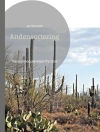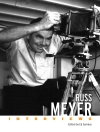Christian Petzold (b. 1960) is the best-known filmmaker associated with the “Berlin School” of postunification German cinema. Identifying as an intellectual, Petzold self-consciously approaches his work for both the big and the small screen by weaving critical reflection on the very conditions of contemporary filmmaking into his approach. Archeologically reconstructing genre filmmaking in a national film production context that makes the production of genre cinema virtually impossible, he repeatedly draws on plots from classic films, including Alfred Hitchcock’s, in order to provide his viewers with the distinct pleasures only cinema can instill without, however, allowing his audience the comforts the “cinema of identification” affords them.
Including thirty-five interviews,
Christian Petzold: Interviews is the first book in any language to document how one of Germany’s best-known director’s thinking about his work has evolved over the course of a quarter of a century, spanning his days as a flailing student filmmaker in the early 1990s in postunified Germany to 2020, when his reputation as one of world cinema’s most respected auteurs has been firmly enshrined. The interviews collected here—thirty of which are published in English for the first time—highlight Petzold’s career-long commitment to foregrounding how economic operations affect individual lives. The volume makes for a rich resource for readers interested in Petzold’s work or contemporary German cinema but also those looking for theoretically challenging and sophisticated commentary offered by one of global art cinema’s leading figures.
เกี่ยวกับผู้แต่ง
Jaimey Fisher, professor of German and of cinema and digital media at the University of California, Davis, is author of German Ways of War; Treme; Christian Petzold; and Disciplining Germany: Youth, Reeducation, and Reconstruction after the Second World War. With Marco Abel, he coedited The Berlin School and Its Global Contexts: A Transnational Art Cinema, and with Peter Uwe Hohendahl, he coedited Critical Theory: Current State and Future Prospects.












